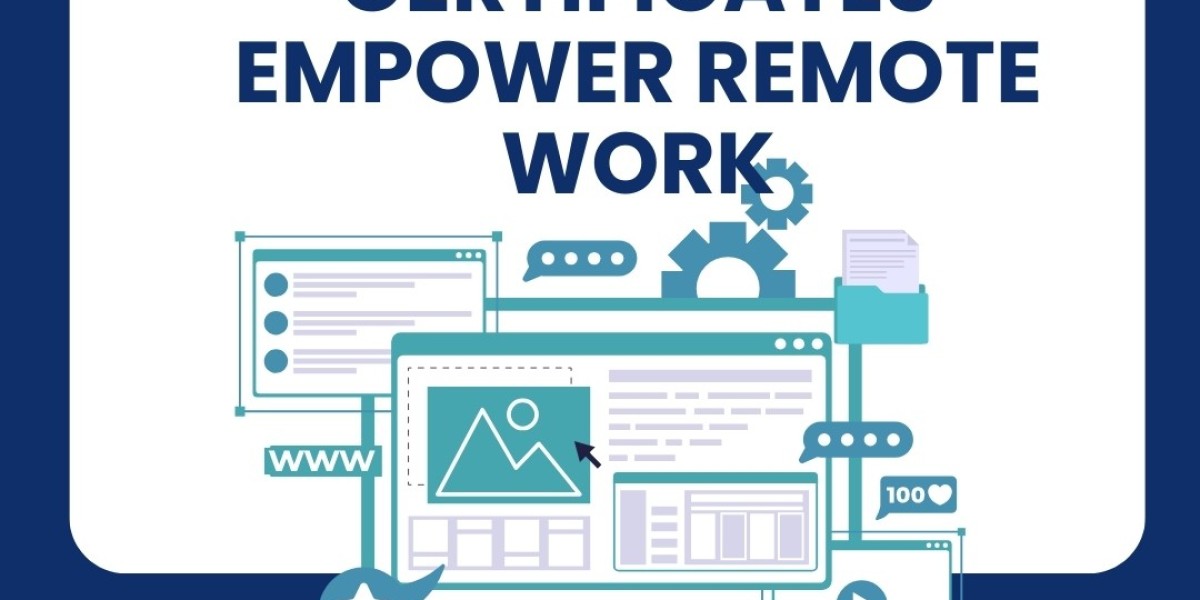Digital Signature Certificates are electronic credentials that validate the identity of the signer, ensuring the authenticity and integrity of digital documents. They are issued by a trusted Certificate Authority (CA) and use asymmetric cryptography to create a unique digital signature that can be attached to electronic documents.
How Digital Signatures Work
- Public and Private Key Pair: Each DSC comprises a public key and a private key. The private key is kept secret by the signer, while the public key is shared with recipients.
- Signing a Document: When a document is signed with a private key, a unique hash of the document is created. This hash is encrypted and becomes the digital signature.
- Verification: Recipients can verify the signature using the sender's public key, ensuring that the document has not been altered and confirming the identity of the signer.
Benefits of Digital Signature Certificates in Remote Work
1. Enhanced Security
Remote work often involves the sharing of sensitive information, making security a top priority. DSCs provide robust security through:
- Authentication: DSCs confirm the identity of the signer, preventing unauthorized access to sensitive documents.
- Data Integrity: By ensuring that the document has not been tampered with since it was signed, DSCs maintain the integrity of data shared between remote workers.
- Non-repudiation: Once a document is signed digitally, the signer cannot deny having signed it, providing a strong legal framework for accountability.
2. Improved Efficiency
Digital Signature Certificates streamline workflows, reducing the time spent on document management:
- Faster Transactions: Traditional signature processes can be time-consuming, involving printing, signing, scanning, and emailing. DSCs eliminate these steps, allowing documents to be signed and sent within seconds.
- Remote Accessibility: DSCs enable remote workers to sign documents from anywhere, at any time, using devices such as laptops, tablets, or smartphones.
- Automated Workflows: Many businesses integrate DSCs with workflow management systems, automating the document signing process and reducing manual errors.
3. Cost Savings
Implementing DSCs can lead to significant cost savings for organizations:
- Reduction in Paperwork: By moving towards a paperless environment, organizations save on printing, storage, and shipping costs associated with physical documents.
- Lower Administrative Costs: Automated processes reduce the need for administrative tasks such as document tracking, follow-ups, and manual signatures.
4. Legal Compliance
Many industries have stringent regulations regarding electronic documentation. DSCs help organizations comply with legal requirements by:
- Adhering to e-signature Laws: In many countries, DSCs meet the legal standards for electronic signatures, ensuring that signed documents are legally binding.
- Supporting Audits and Reporting: DSCs provide an audit trail of signed documents, facilitating compliance reporting and audits.
Applications of Digital Signature Certificates in Remote Work
1. Contract Management
In a remote work environment, contracts are often negotiated and signed digitally. DSCs ensure that contracts are signed quickly and securely, reducing delays in business transactions.
- Remote Negotiations: Remote teams can collaborate on contract terms in real time, using DSCs to sign and finalize agreements without physical meetings.
2. Human Resource Management
DSCs play a crucial role in human resources by streamlining hiring processes:
- Job Offers and Employment Contracts: HR professionals can send job offers and contracts to candidates for digital signing, expediting the onboarding process.
- Policy Updates: Organizations can share policy updates with employees and require digital signatures to acknowledge receipt and understanding, ensuring compliance.
3. Financial Transactions
In the finance sector, DSCs are essential for secure transactions:
- Loan Agreements: Financial institutions can send loan agreements to clients for digital signing, allowing for faster processing of loans.
- Tax Filing: DSCs facilitate the electronic submission of tax documents, ensuring secure and timely filing.
4. Government Services
Many government services have transitioned online, necessitating secure digital transactions:
- Permits and Licenses: Citizens can apply for permits and licenses online, signing documents with DSCs to ensure authenticity.
- Public Records: Government agencies can maintain the integrity of public records by using DSCs for signing documents.
Best Practices for Implementing Digital Signature Certificates
To fully leverage the benefits of DSCs in a remote work environment, organizations should adopt the following best practices:
1. Choose a Reputable Certificate Authority
Selecting a trusted Certificate Authority is crucial to ensure the reliability and security of the DSCs. Organizations should evaluate CA providers based on their reputation, security measures, and compliance with industry standards.
2. Train Employees
Proper training is essential for effective DSC implementation. Employees should be educated on:
- How to Use DSCs: Training sessions can help employees understand how to obtain and use their DSCs for signing documents.
- Security Best Practices: Educating employees on maintaining the security of their private keys and recognizing phishing attempts is critical.
3. Integrate with Existing Systems
For seamless adoption, organizations should integrate DSCs with their existing document management and workflow systems. This integration can automate signing processes and improve overall efficiency.
4. Monitor and Maintain Security
Regularly monitoring and updating security protocols is essential for protecting digital signatures:
- Regular Audits: Conduct periodic audits of signed documents and DSC usage to ensure compliance and security.
- Key Management: Implement robust key management practices to protect private keys, including using hardware security modules (HSMs) or encrypted storage solutions.
5. Stay Updated on Legal Changes
Laws and regulations surrounding digital signatures are continually evolving. Organizations must stay informed about changes in legislation to ensure compliance with current legal requirements.
Suggested read:- Digital Signature Certificate for Income Tax.
Conclusion
Digital Signature Certificates are transforming the remote work landscape by enhancing security, improving efficiency, and ensuring compliance with legal standards. As organizations continue to embrace remote work, the adoption of DSCs will become increasingly critical in fostering secure and streamlined operations. By implementing best practices and leveraging the benefits of DSCs, organizations can empower their remote workforce, ensuring that they remain competitive and efficient in today’s digital economy.
In a world where remote work is here to stay, Digital Signature Certificates are not just a convenience; they are a necessity for organizations looking to thrive in the new normal.


